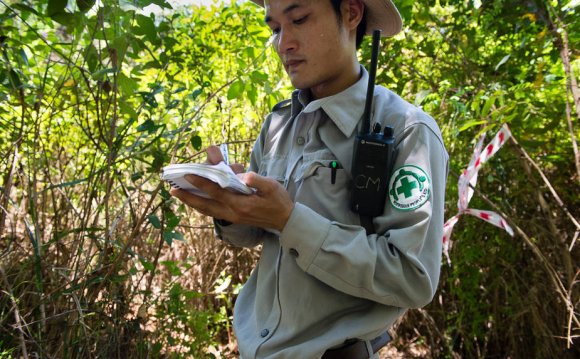
 Foreign relations between the usa and Vietnam soured after 1975. They couldn't completely recuperate through to the mid-1990s, when economic, governmental, and social ties revived, resulting in a vibrant period of governmental reconciliation because of the 12 months 2000. Following North Vietnam's success in 1975, the U.S. mindset toward Vietnam ended up being antagonistic. In Paris Peace Accords, the usa had decided to provide $3.3 billion over 5 years to help reconstruct the shattered infrastructure of Vietnam. Instead of meeting its obligations, the United States extended to all the of Vietnam the trade embargo against communist North Vietnam that were ratified in Trading using Enemy Act passed throughout the early many years of the dispute. The United States further marginalized Vietnam by halting credits and loans from financial establishments such as the World Bank, the Overseas financial Fund, and Asian developing Bank. Pursuing acceptance in international arena, Vietnam attempted repeatedly to become listed on the us, simply to be halted by American vetoes.
Foreign relations between the usa and Vietnam soured after 1975. They couldn't completely recuperate through to the mid-1990s, when economic, governmental, and social ties revived, resulting in a vibrant period of governmental reconciliation because of the 12 months 2000. Following North Vietnam's success in 1975, the U.S. mindset toward Vietnam ended up being antagonistic. In Paris Peace Accords, the usa had decided to provide $3.3 billion over 5 years to help reconstruct the shattered infrastructure of Vietnam. Instead of meeting its obligations, the United States extended to all the of Vietnam the trade embargo against communist North Vietnam that were ratified in Trading using Enemy Act passed throughout the early many years of the dispute. The United States further marginalized Vietnam by halting credits and loans from financial establishments such as the World Bank, the Overseas financial Fund, and Asian developing Bank. Pursuing acceptance in international arena, Vietnam attempted repeatedly to become listed on the us, simply to be halted by American vetoes.
Relations with the united states of america began to soften during first year of Carter administration, though war wounds however ran too deep to allow a commitment of collaboration and agreement between your two countries. President Carter and Congress suggested that relations could be normalized in the event that vexing problems surrounding prisoners of war (POWs) and soldiers missing in action (MIAs) had been resolved. Roughly 2, 500 U.S. solution workers always been reported as missing within the jungles of Vietnam, and Americans desperately wished a detailed assessment of the figures and of whether some of them were still alive in Vietnamese camps. Optimism expanded in 1977 and 1978 given that two countries discussed initial dilemmas.
President Carter sent Assistant Secretary of State Richard Holbrooke in-may 1977 to meet with Vietnamese officials. The talks broke straight down, however, whenever Vietnam demanded a number of billion dollars in repayment for war problems, that your US rejected due to the fact Vietnamese had allegedly broken the 1975 Paris Accords by invading South Vietnam. President Carter suggested your United States would provide aid, but that money couldn't be linked to normalization or the POW-MIA concern.
Whenever Vietnamese eventually relented to their demands for reparations, they neglected to receive a corresponding overture through the United States. This stemmed from formal and public security over Vietnamese immigration, a Vietnamese intrusion of Cambodia, and tremendously powerful Soviet existence in the area (epitomized because of the Soviet base at Cam Ranh Bay, the biggest army installing the USSR outside its borders). After the Vietnamese intrusion of Cambodia, the United States sent covert aid to noncommunist Cambodian guerrillas who have been fighting Vietnam.
At the same time, as relations between Asia and Vietnam worsened, U.S.–Chinese relations enhanced, culminating into the organization of complete diplomatic ties amongst the two countries in 1978. This development, along with Vietnam's invasion of Cambodia in 1978, its treaty of alliance using the Soviet Union the exact same 12 months, and a border war with China in 1979 gave more impetus to American hostility toward Vietnam. During final years of the cool War, Vietnam found itself highly lined up with anti-American causes that helped counterbalance billions of bucks lost from United states trade embargo.
In the middle of incapacity of United states and Vietnamese leaders to get together again nationwide passions in 1970s and 1980s set the problematic POWMIA issue. Even though the quantity of MIAs in World War II plus the Korean War (80, 000 and 8, 000, correspondingly) had been a great deal greater than MIAs in Vietnam War, the tiny range lacking United states troops into the second conflict (1, 992 in most of Southeast Asia, 1, 498 in Vietnam) captured the national psyche. They became the main focus of a national crusade that retained its fervor into the twenty-first century. The plight of MIAs obtained much greater attention when you look at the aftermath of conflict as nationwide leaders in addition to media fed public alarm on the fate of lacking veterans. Even though the Department of Defense declared the MIAs deceased, it might not end the issue from developing to national value. Unconfirmed public sightings of U.S. troops in Vietnam by refugees yet others led to expeditions by US veterans to get their particular missing comrades. By 2001 no sightings have been confirmed, although man keeps had been repatriated from Vietnam into united states of america as part of a continuing plan of cooperation involving the two countries. Above $5 million had been invested annually by the united states of america on tries to discover and get back the stays of missing servicemen in Southeast Asia.
YOU MIGHT ALSO LIKE












